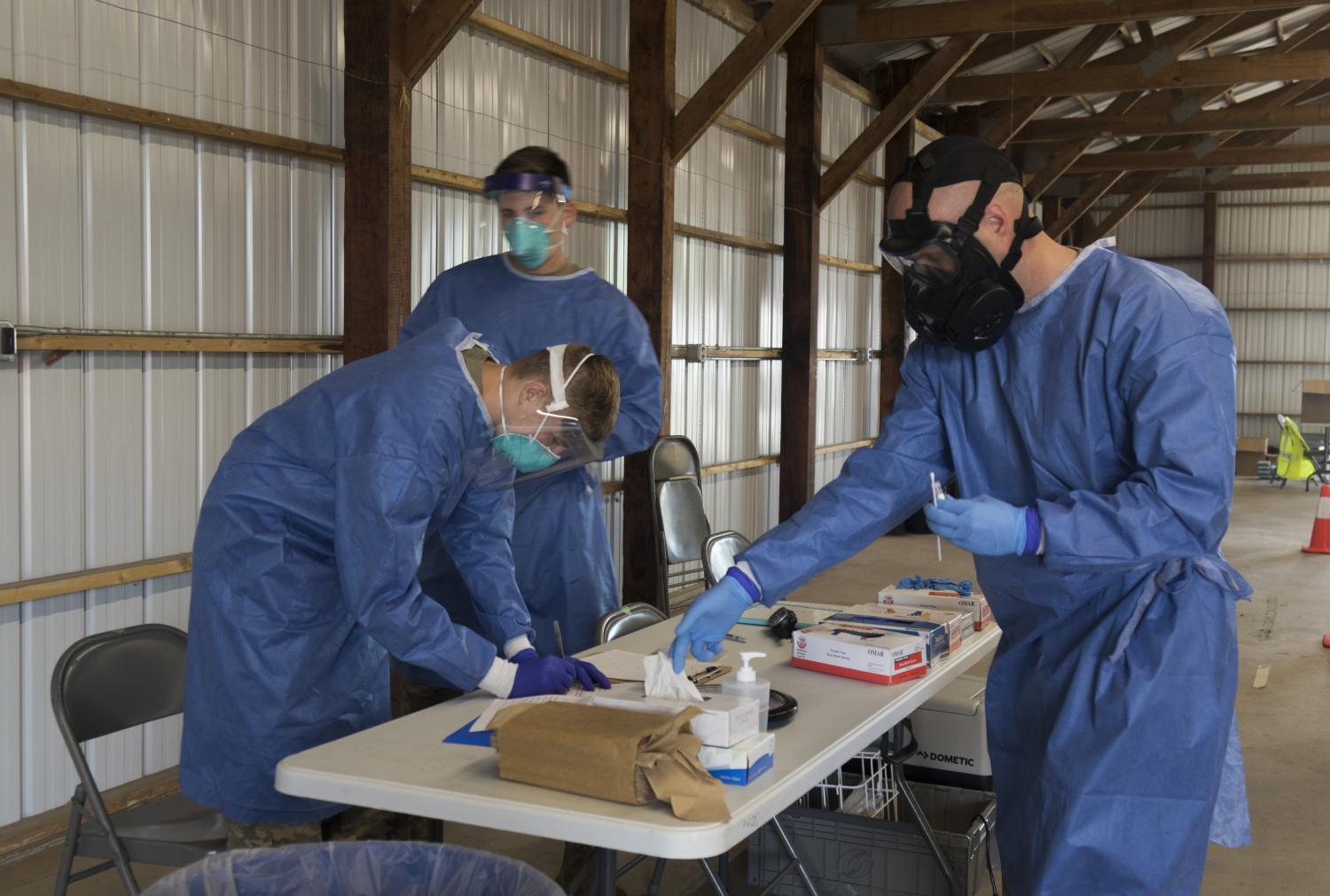Robert Redfield, MD, director of the Centers for Disease Control and Prevention (CDC) thanked Americans today for being "selfless" 6 months into the nation's continued fight against COVID-19. The comments were made during the agency's first media briefing on the coronavirus in several weeks.
At the start of the pandemic, the CDC held weekly briefs on the growing outbreak, but since March has remained mostly silent as the agency continues to work to track the virus' course across the country.
Mitigation may be needed again
Despite flattening or plateauing the curve in many parts of the country, Redfield said Americans need to embrace recommendations made by the CDC as life returns to normal. "It continues to be extremely important to embrace recommendations of social distancing, hand washing, and wearing a cloth face covering in public," Redfield said.
Redfield was joined by Jay Butler, MD, deputy director for infectious disease, to announce new common sense guidelines meant to help Americans make decisions about how to proceed with everyday activities that may now be open in their state, including going to the bank, eating at a restaurant, and attending an outdoor gathering at someone's house.
"We are all getting tired of staying at home," said Butler. "But we have to remember… Every activity that involves interacting with others has some degree of risk."
"If cases begin to go up again, particularly if they go up dramatically, it's important to recognize that more mitigation efforts such as what were implemented back in March may be needed again," said Butler.
The CDC suggests people try to socialize and dine outdoors rather than inside, refrain from touching non-family members, and keep interactions brief. The CDC also recommends all Americans leave the house with a cloth mask, hand sanitizer containing 60% or more of alcohol, and tissues in tow.
Attitudes on distancing
The guidelines come as a new report on Americans' attitudes about physical distancing is published in Morbidity and Mortality Weekly Report.
The survey was conducted in New York City and Los Angeles from May 5 to 12 and also included a third cohort of participants selected from across the country. A total of 1,676 participants answered the survey from across the United States, compared with 286 in the New York cohort, and 259 in the Los Angeles cohort.
A strong majority surveyed (US, 74.1%; New York City, 89.6%; Los Angeles 89.8%) said they wore a cloth mask when in public and supported stay-at-home orders and the shuttering of non-essential businesses (US, 79.5%; New York City, 86.7%; Los Angeles, 81.5%).
"There was broad support for stay-at-home orders, nonessential business closures, and adherence to public health recommendations to mitigate the spread of COVID-19 in early- to mid-May 2020," the authors concluded.
Also today, the CDC updated its fatality forecast, based on 17 models. The agency predicts that there will likely be between 124,000 and 140,000 total reported COVID-19 deaths by July 4th.
Governors say case increases not related to reopening
Across the country several states are reporting record high numbers of daily COVID-19 cases, or the highest numbers recorded in months, but governors are claiming that the spike in virus activity is not linked to reopening economies.
In South Carolina, health officials noted almost 700 new infections yesterday, while Florida saw nearly 1,700 new cases — the highest daily total since March. According to National Public Radio, cases are still soaring in Arizona, and Texas is still seeing more hospitalizations for severe cases of the virus.
Florida Governor Ron DeSantis said the increase is because his state is conducting more than 30,000 tests per day. Health officials in South Carolina, however, said that state's increase is likely tied to Memorial Day festivities that featured limited mask use and no social distancing protocols.
Other governors also said reopening was not linked to increasing case counts. Arkansas Governor Asa Hutchinson said, "Our data in Arkansas tells us that the growth rate in cases is not the result of lifting restrictions," according to The Hill.
"Americans are on the move and they can't be tied down and they can't be restrained, unless they make a voluntary decision that this is right for me and my health or my family," Hutchinson said.
According to the Arkansas Times, a hospital in Northwest Arkansas —Washington Regional Medical Center in Fayetteville —issued a statement saying it has seen a 350% increase in COVID-19 hospitalizations and 156% increase in calls to its COVID-19 hotline over the past month.
"It is important for our community to understand that we are not seeing more hospitalizations simply because more testing is being done. We are seeing more hospitalizations because more people in our area are being infected with the virus," the statement said.
Other governors, like Oregon's Kate Brown, however, have seen rising case counts as a signal to slow down reopening. Brown announced a 1-week pause in reopening after 177 COVID-19 cases were reported yesterday.
The Johns Hopkins University COVID-19 tracker shows 2,033,003 cases in the United States today, including 114,126 fatalities.
Mayo Clinic announces new antibody test
Finally, the Mayo Clinic in Rochester, Minn., announced yesterday they created a new antibody test that would be the first in the world to identify neutralizing antibodies, which signal protection from — and not just exposure to — COVID-19.
The test is available for use at Mayo now, and will be commercially available by the end of June. Mayo officials warn, however, that the test will not act as an "immunity passport," as it is not yet known how many neutralizing antibodies are needed to protect against future infections of COVID-19.





















